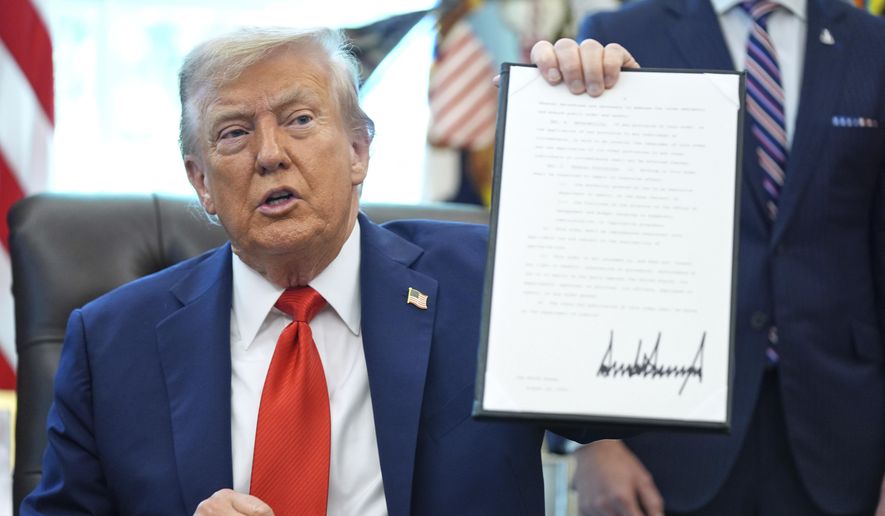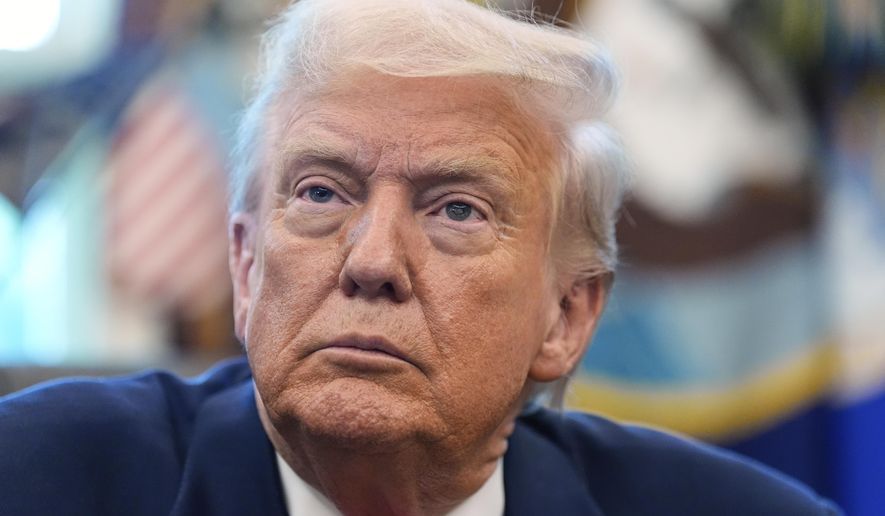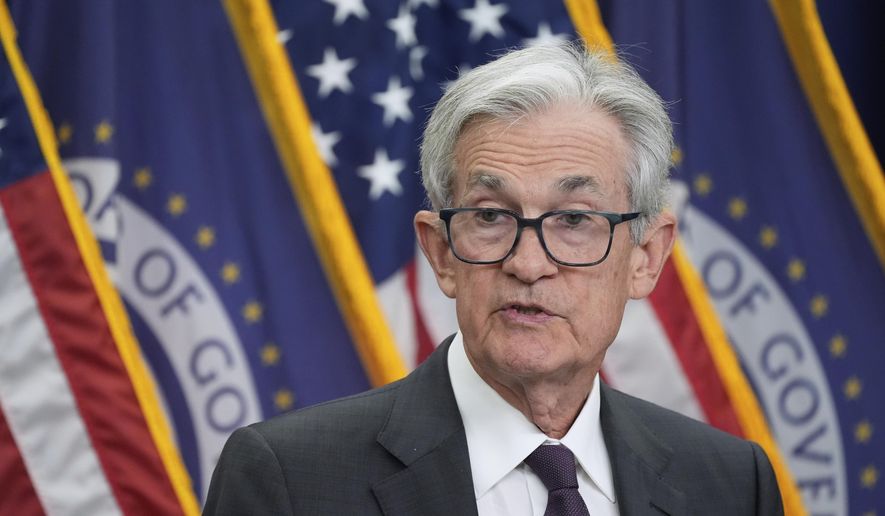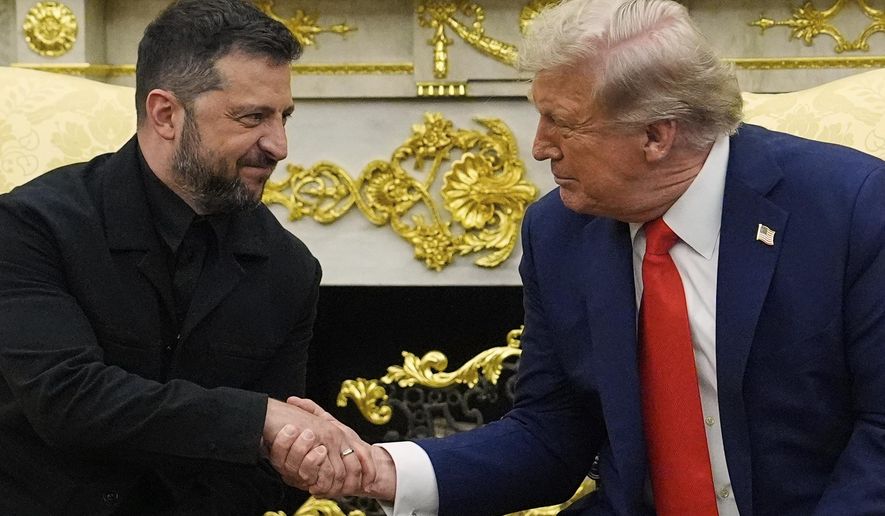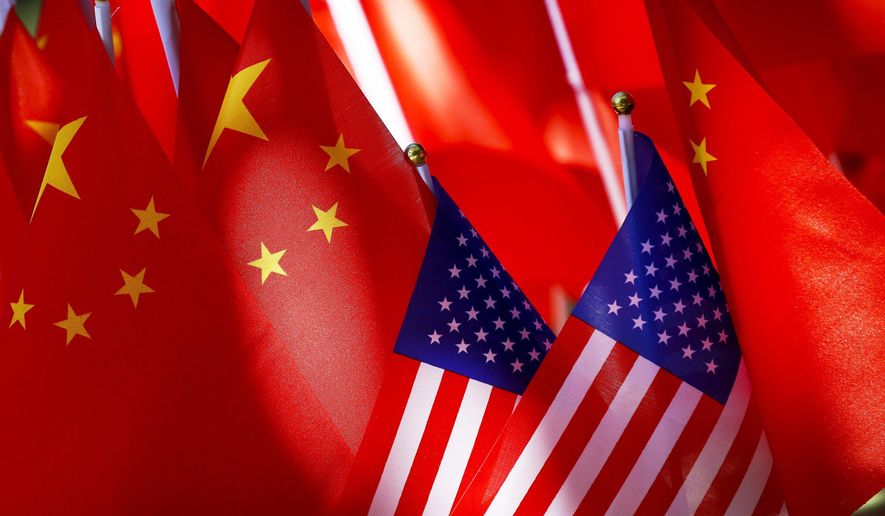
Simon Hankinson | August 27, 2025
(The Washington Times) — Reports of Chinese nationals admitted to the U.S. on visas and then spying or stealing sensitive information for China are all too common. But perhaps more shocking is the fact that some Chinese nationals are able to enter U.S. territory without any visas at all.
How?
The answer can be found in a special program that allows Chinese to travel without a U.S. visa.
The Visa Waiver Program provides 90-day visa-free travel to the United States for certain stable, prosperous countries that have good relations with the U.S. and whose citizens have very low rates of visa abuse.
To be in the VWP, countries must share criminal records of their citizens with U.S. authorities to ensure that any applicants with adverse records are properly vetted and refused entry if necessary.
Countries with high overstay rates — such as Chad or India — are eons away from qualifying for such a program. Countries that are hostile to the United States, that routinely spy on our military facilities, and that steal our technology — like China — are impossible to imagine getting the privilege.
So why are Chinese citizens now allowed to get into the Commonwealth of the Northern Mariana Islands without a visa and the scrutiny that goes with it?
The CNMI is a U.S. territory, and as of 1986, its natives are U.S. citizens. One of the islands (Saipan) was the site of a bloody battle against the Japanese and remains the site of sensitive U.S. military bases. But it’s open to Chinese nationals without visas.
The U.S. implements a host of programs similar to the VWP for Canadians, Caribbean islands, and Pacific-island states. One is the Guam-CNMI visa waiver program, which lets foreigners from selected countries travel there — but not to the mainland U.S. — without a visa.
Under the Consolidated Natural Resources Act of 2008, the Homeland Security secretary can add countries to the Guam-CNMI program.
At the end of the Biden Administration, the U.S. added China to the Guam-CNMI program under something called the “CNMI Economic Vitality and Security Travel Authorization Program,” or EVS-TAP.
That’s a convoluted term for a two-week visa-free travel program for Chinese tourists, mostly gamblers.
Via this program, the Chinese Imperial Pacific International Holdings company runs a casino on Saipan, through which billions of dollars flow annually. The company has injected money into local politics — and into the islands’ Casino Commission.
The most recent CNMI governor, Arnold Palacios, died last month. As Chinese money washed over on his tiny homeland and its 50,000 inhabitants, bringing corruption in its wake, he was known for fighting back.
In contrast, Ralph Torres, CNMI’s governor before Palacios, was reportedly investigated by the FBI along with other unnamed politicians and businessmen on suspicion of taking illegal campaign contributions from Chinese accounts in exchange for political favors.
Incidentally, Angel Damapan, who is from Saipan and previously worked for Mr. Torres, was appointed Deputy Assistant Secretary for Insular and International Affairs at the U.S. Interior Department in May 2025.
Under U.S. law, DHS has to consult with Interior and the secretary of state before adding countries to EVS-TAP. This means Mr. Damapan, once likely an advocate for EVS-TAP, is now in part responsible for approving and managing it.
The EVS-TAP, created as a way to get Chinese gamblers into the CNMI to spend money, is a loophole through which prospective illegal immigrants can avoid the scrutiny that comes with applying for a U.S. visa in China or Hong Kong.
Guam is just a 45-minute flight (or a longer boat ride) from Saipan. As Washington Times Commentary Editor Kelly Sadler writes, “since 2022, 118 Chinese nationals have been documented trying to illegally enter Guam, with several appearing on federal watchlists as potential security threats.”
In 2023, 11 Chinese people were caught being smuggled illegally from Saipan to Guam when their boat ran out of gas and they had to be rescued by the U.S. Navy.
In December 2024, Kangle Jiang paid a local Saipan man $6,000 to take him and seven other Chinese nationals to Guam by boat. They were caught because they couldn’t swim the last few yards to shore as needed.
These two boats got caught, but just as millions of “gotaways” got through uncounted at the southern border in recent years, surely other boats carrying Chinese illegally have made it.
According to U.S. Attorney Shawn Anderson, Jiang “took advantage of unique federal immigration regulations [the EVS-TAP] that permit certain foreign nationals to visit the CNMI as tourists.”
Mr. Anderson added that “any local economic benefits from these provisions are lost when those persons later attempt to unlawfully enter another part of the United States.” Indeed.
Visa interviews and related vetting are not foolproof, but they are better than the nearly automatic granting of travel permission that comes with visa waiver programs.
Given the unique range of threats China presents to the U.S., from military to economic to illegal migration, Chinese nationals should be required to get a visa to visit the U.S. or any territories governed by our immigration laws. Making it easier for a Chinese-owned casino on U.S. territory to rake in money seems an insufficient reason to make an exception to that rule.
Simon Hankinson is a senior research fellow in The Heritage Foundation’s Border Security and Immigration Center and author of “The Ten Woke Commandments (You Must Not Obey)” from Academica Books.









